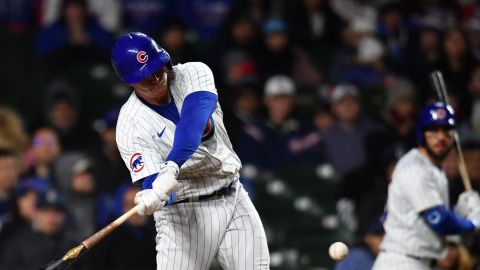BOSTON — When the Yankees and Red Sox offenses are doing their thing, the impact isn’t always immediately evident on the scoreboard. What they so often do is create cause-and-effect scenario at another point in the game.
Such was the case Thursday night at Fenway Park, where New York began a marathon affair with a marathon showing against Jon Lester in the first inning, the first blow in what resulted in a 4-2 Yankees victory.
Lester allowed only one run in the 43-pitch opening frame, but the ramifications of it would reverberate through the entirety of a four-hour, 21-minute affair, the longest between the two rivals this season.
Although Lester did an admirable job of limiting the Yankees in the inning, leaving the bases loaded, all the work he did eventually would limit his night, expand that of the bullpen and leave the Red Sox exposed a bit more than manager Terry Francona would like.
“The first inning was a good example,” Francona said of New York’s grinding approach to at-bats. “They make Lester throw 43 pitches, almost to the point where we had to get somebody up. Not because he was ineffective, just start getting to the point where it’s a lot of pitches.
“They do a really good job of that. You get to your bullpen early and if somebody makes a mistake, that’s what happens.”
Lester left with a 2-1 lead but lasted just five innings, his shortest start of the season that did not involve an injury. He threw 114 pitches, and seemingly 113 of them became souvenirs for those that were part of Fenway Park’s 699th consecutive sellout.
“A lot of foul balls, a lot of long at-bats,” Lester said. “That’s what you get with these guys.”
It began innocently enough. Lester struck out Derek Jeter on six pitches to start the game. Curtis Granderson singled on the third pitch of his at-bat and Mark Teixeira did the same on the fifth Lester offering he saw.
Robinson Cano drove Lester’s 17th pitch of the inning off the Green Monster to drive in the only run of the inning, but the next 26 (10 in a strikeout to Nick Swisher, nine in a walk to Andruw Jones and six in a strikeout of Jesus Montero) laid the foundation for late-game shifts that helped the Yanks mount the critical rally in the seventh.
Lester said he felt as if he threw the ball well, and he did. The Yankees just found a way to waste so many of those deliveries.
“Really two hard-hit balls and 114 pitches later I’m through five,” he said.
After the early exit, Lester watched as Alfredo Aceves labored. Aceves faced six men in the sixth, escaping with the bases loaded, and then allowed two to reach with one out in the seventh. That prompted Francona to call on Daniel Bard, who does the bulk of his work once the eighth inning begins, not two outs before.
Bard made a couple of rare mistakes, the first resulting in a go-ahead two-run double by Russell Martin and the second a run-scoring single by Eric Chavez that created the final margin.
As great as Bard has been, he is going to give up a hit or two. What made these two hits hurt was the fact that runners were on base. What helped those two runners reach was a wayward Aceves that had to throw 42 pitches in just 1 1/3 innings. What made Aceves have to throw so many pitches so early on was the short start made by Lester. And what made Lester’s start so short, relatively speaking, was a first inning that summed up what make these teams great.
“People wonder why we play four-hour games with the Yankees,” Lester said. “It’s right there in front of you.”



